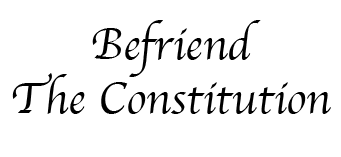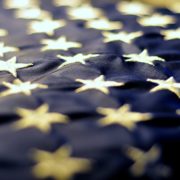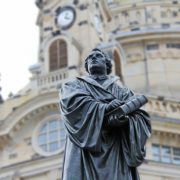Returning to the Constitution
Some have wondered if there is a reason to study the Constitution and the founding of our nation. Government today is so far removed from the Constitution that this founding document can seem irrelevant. It can seem impossible to ever get government back within its constitutional bounds. However, if we recognize the constitution as the ideal, then its study is clearly the only way to get back to good government.
Ezra Benson said: “We must learn the principles of the Constitution and then abide by its precepts. Have we read the Constitution and pondered it? Are we aware of its principles? Could we defend it? Can we recognize when a law is constitutionally unsound?”
Today, the federal government operates largely outside the bounds of the Constitution. It is becoming the all powerful central government the Founders feared. It has largely usurped the power of the state governments and effectively controls them through various means. How the government operates today is far from what was intended. When we compare the issues and policies of today with the principles of the Constitution we can begin to see where and how the government has gone wrong.
If we are to regain our freedoms and see the government once again operating within its proper bounds then we must hold our elected representatives accountable. Do we understand the proper structure and operation of government and what our representatives are required to do? Is our understanding sound enough to recognize when our representatives have overstepped the bounds placed upon them by the Constitution? If we, as citizens, cannot answer yes to these questions then who is in control?
How can we stop the deterioration of the ideals and values upon which our society is based and the destruction of our rights? We must first understand what they are and from where they come. Those who founded this nation and framed the Constitution had religious and moral beliefs that not only formed the basis of of our society but also our form of government. As we study the intent of the Founders we can understand the religious and moral foundation upon which our freedoms rest.
The Constitution is an inspired document. This has been attested to by the Founders of this nation, by ancient and modern scripture, and by ancient and modern prophets. Joseph Smith said: “The Constitution of the United States is a glorious standard; it is founded in the wisdom of God. It is a heavenly banner.” The Doctrine and Covenants states that the Constitution “should be maintained for the rights and protection of all flesh”. As we depart from the principles of the Constitution we move from being governed by the wisdom of God to being governed by the wisdom of men.
We cannot improve our government by departing from the principles of the Constitution. We can only make it worse. The problems we face today are because we have departed from the Constitution. Will the problems be fixed by departing further? The solution lies in going back to the Constitution.
To get back to the Constitution we need to have studied it and understand it. We need to know it is inspired and that departing from it is wrong. We need to understand its religious and moral roots. We need to understand the proper role of government. We need to know what is expected of our elected officials and hold them accountable. Remember that the Constitution says “We the People”.
This is why studying the Constitution matters.
Published September 26, 2016



